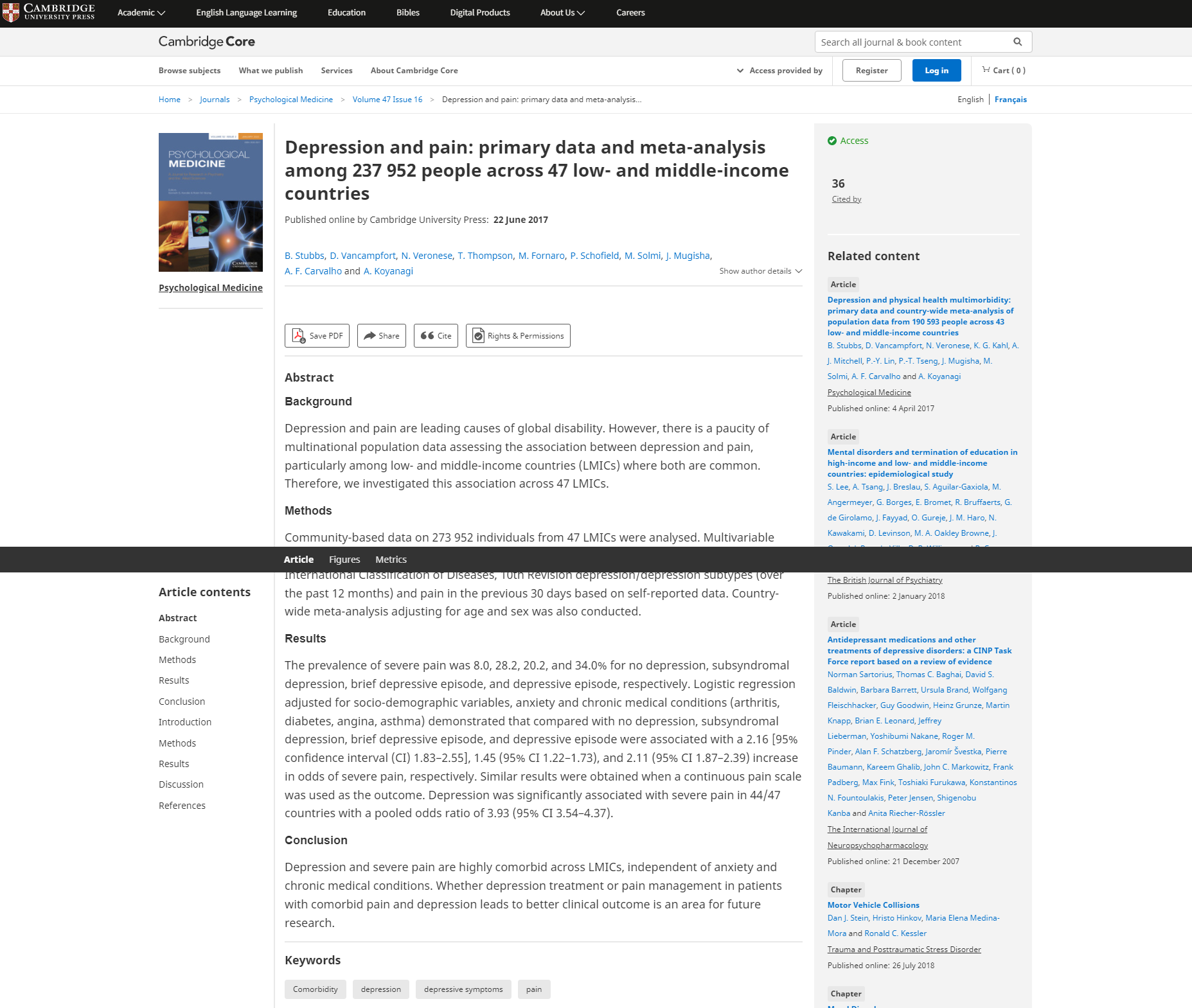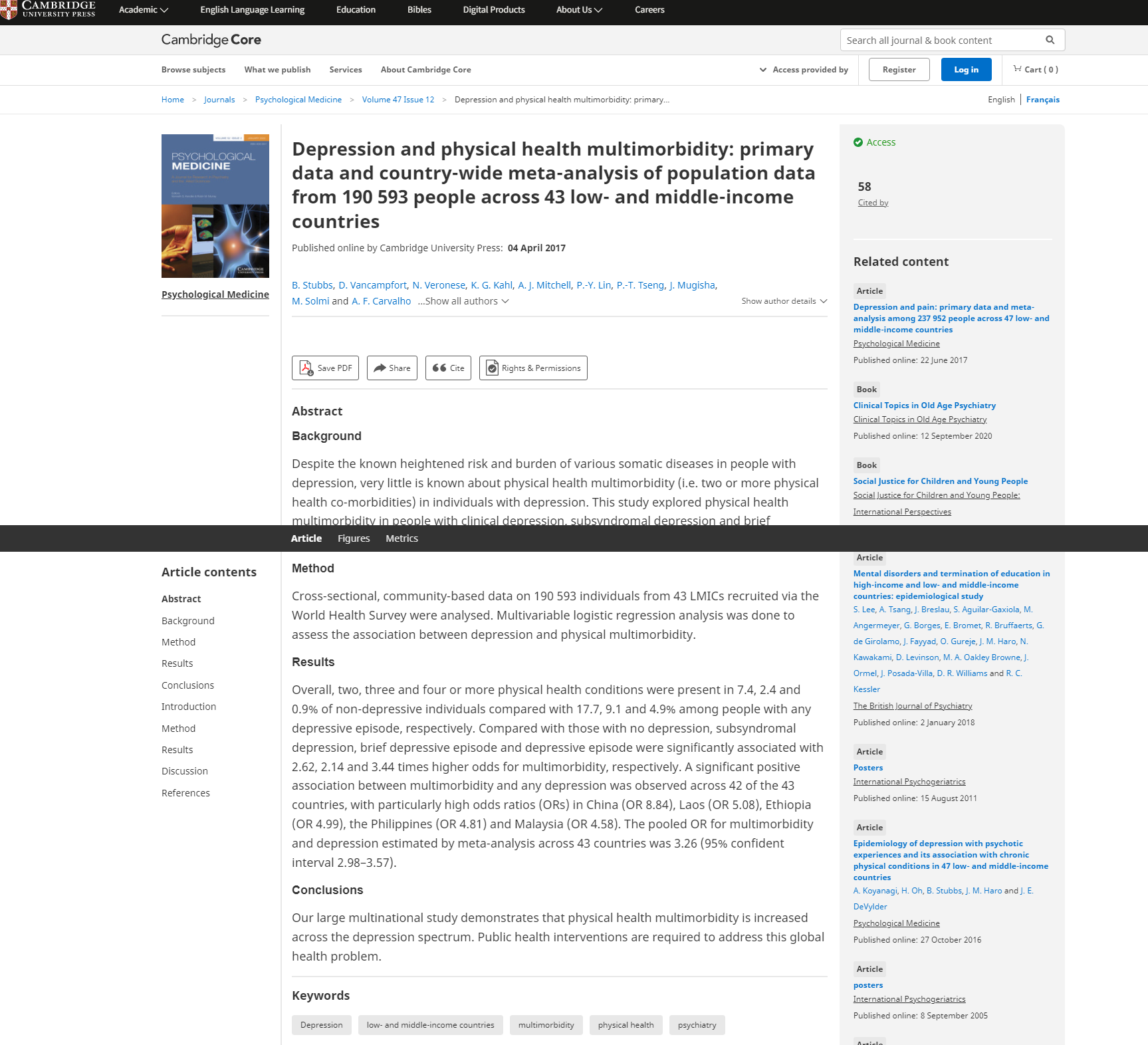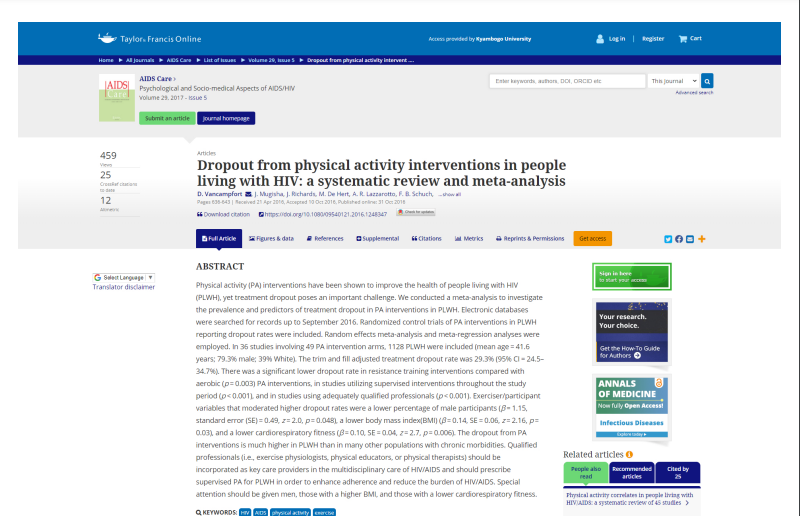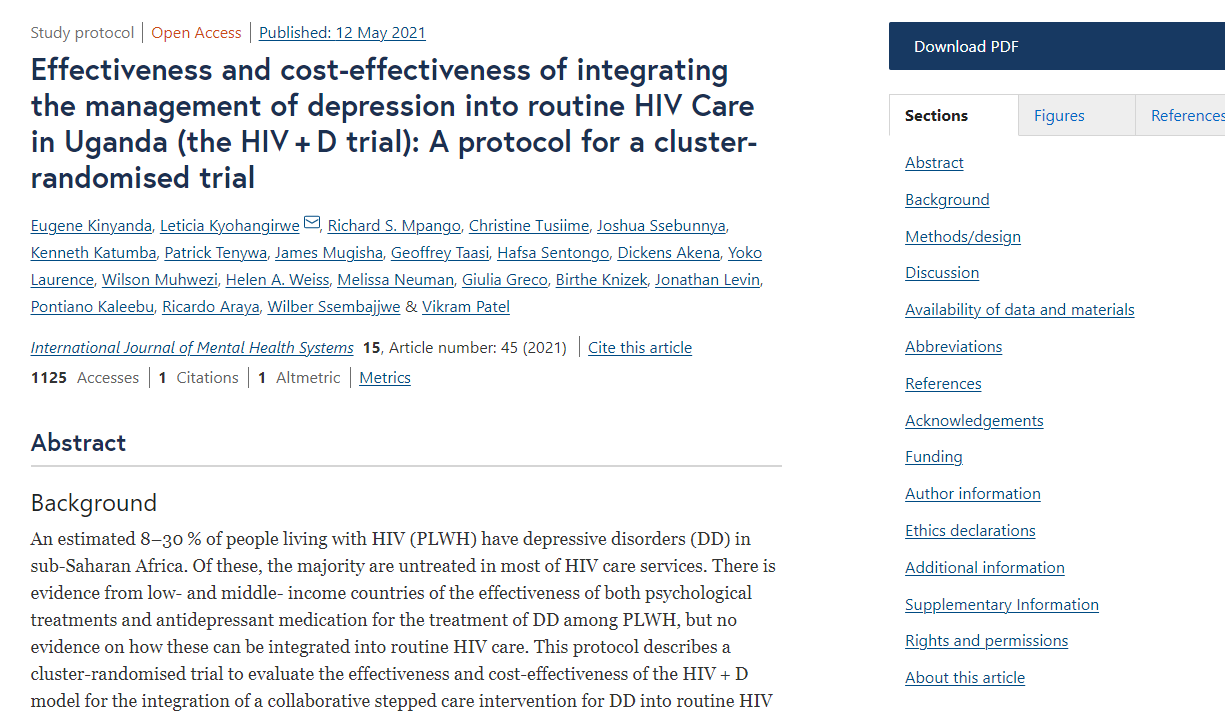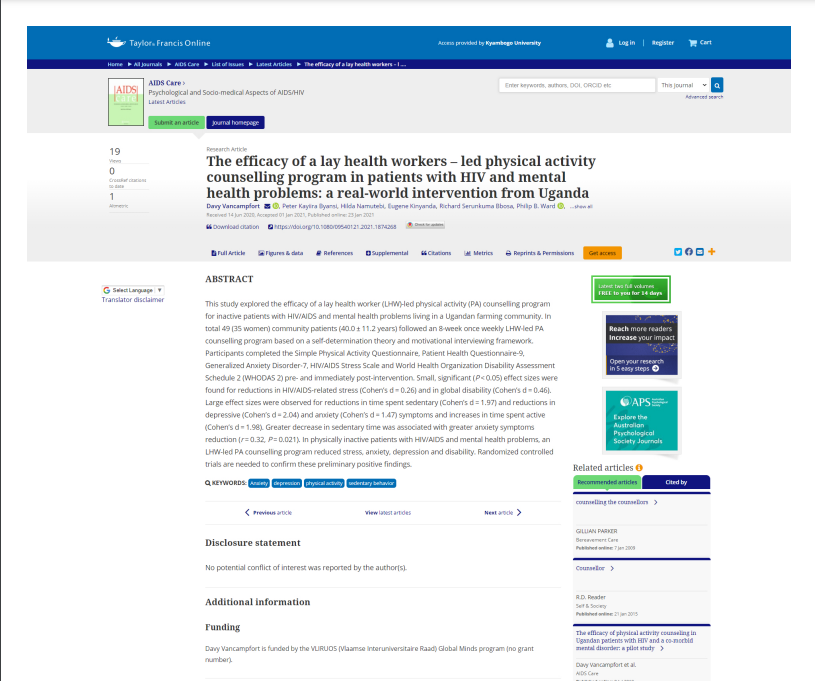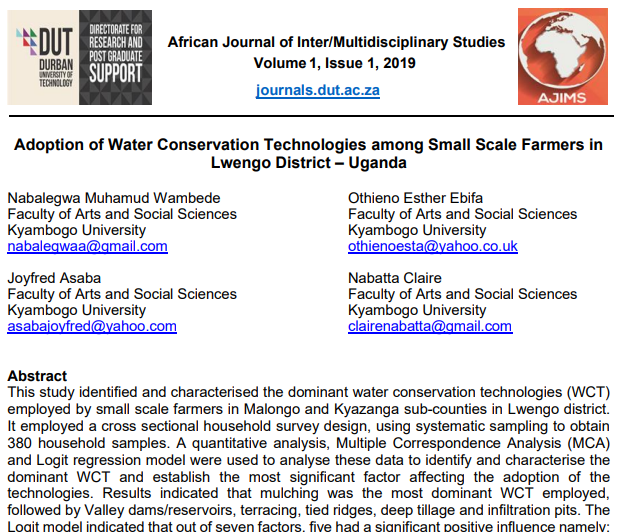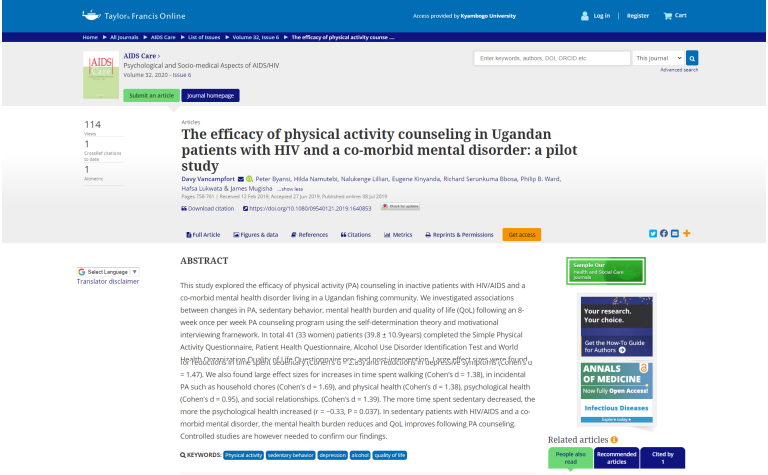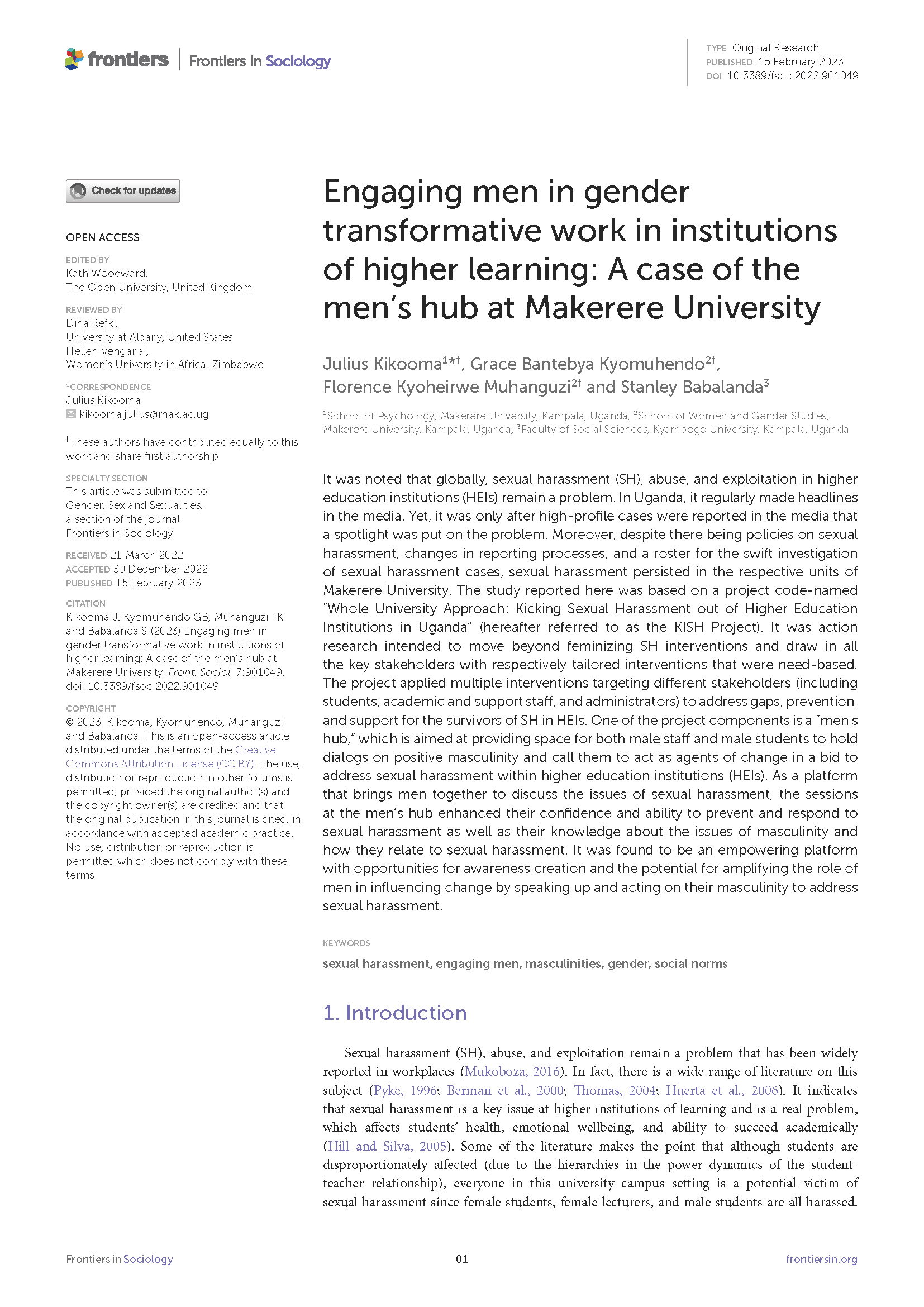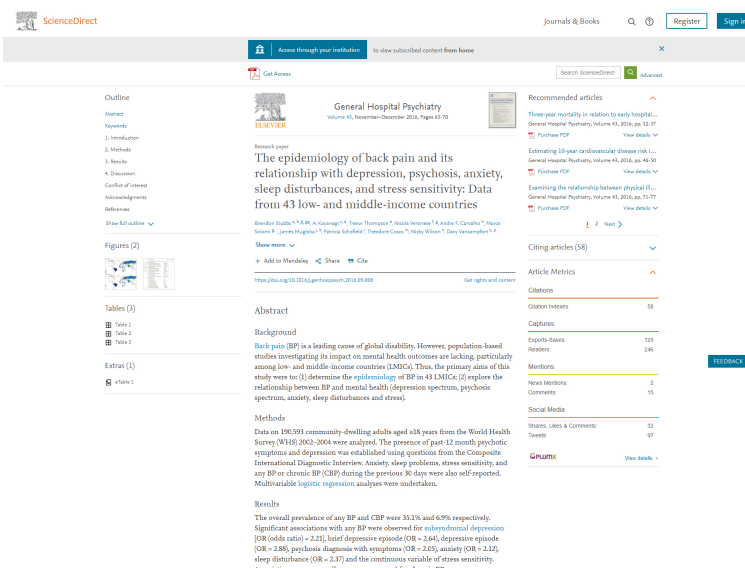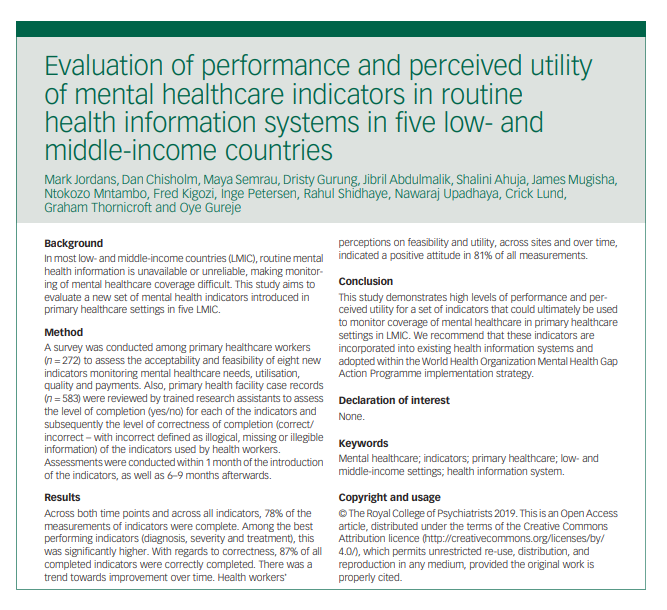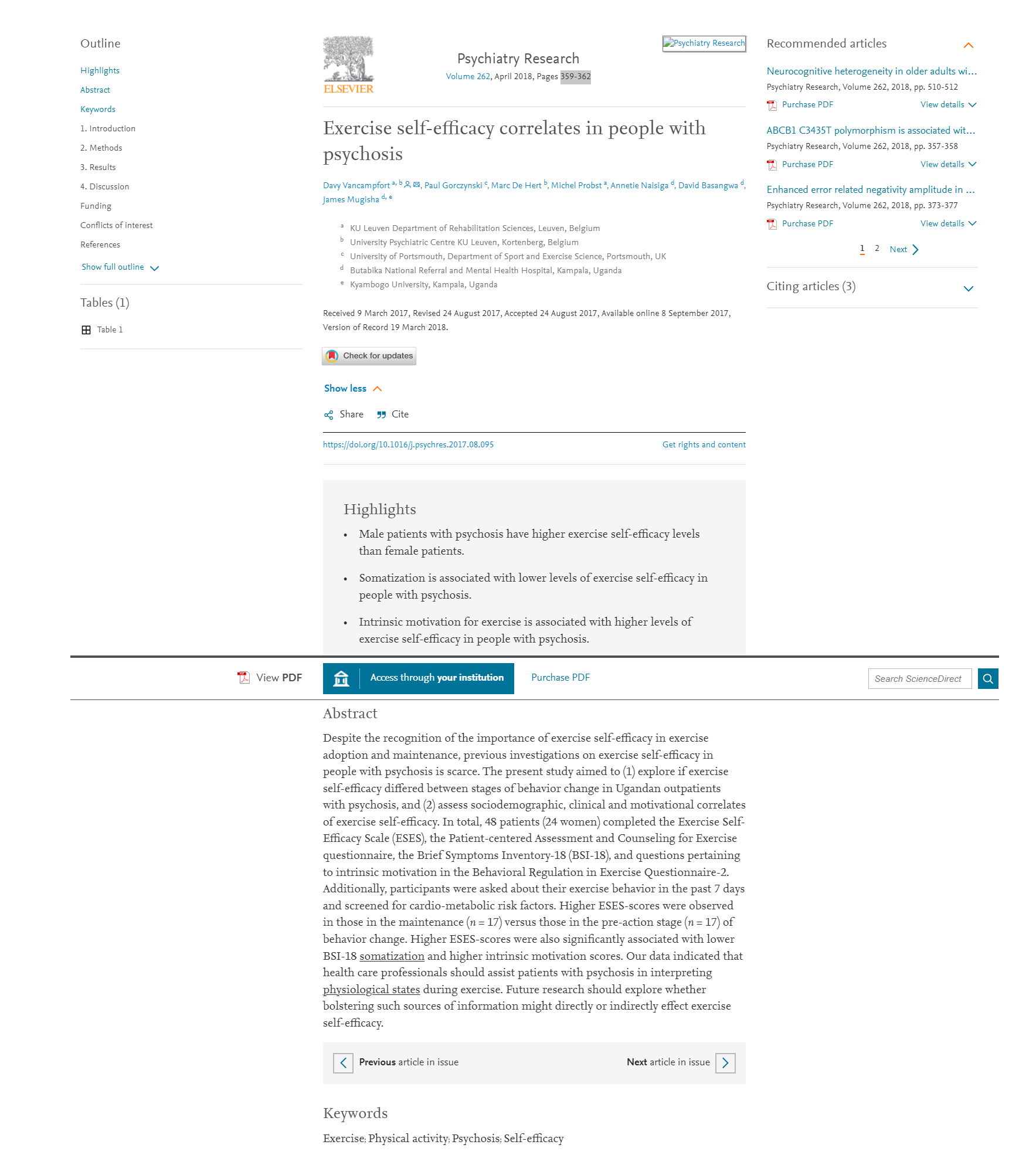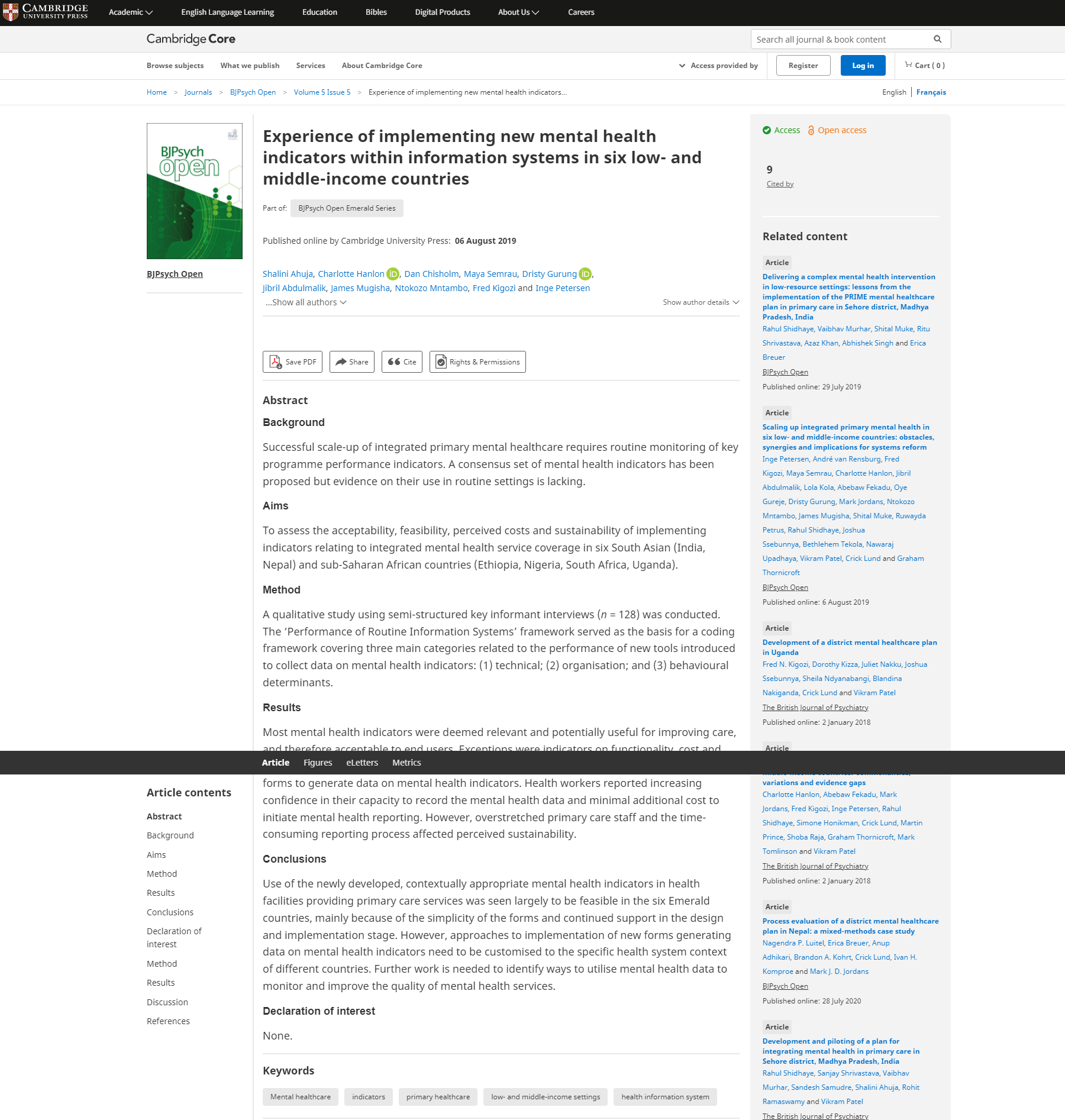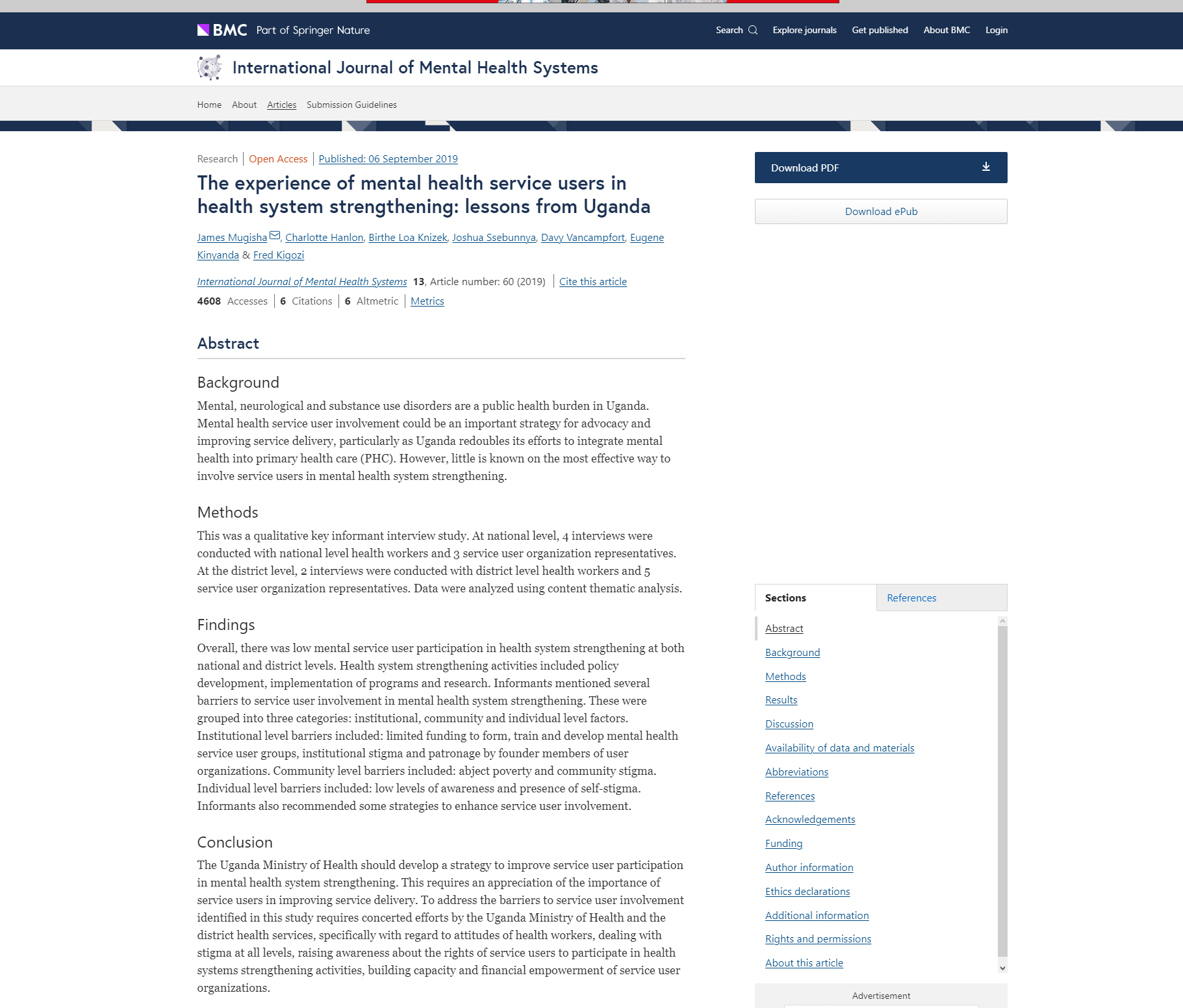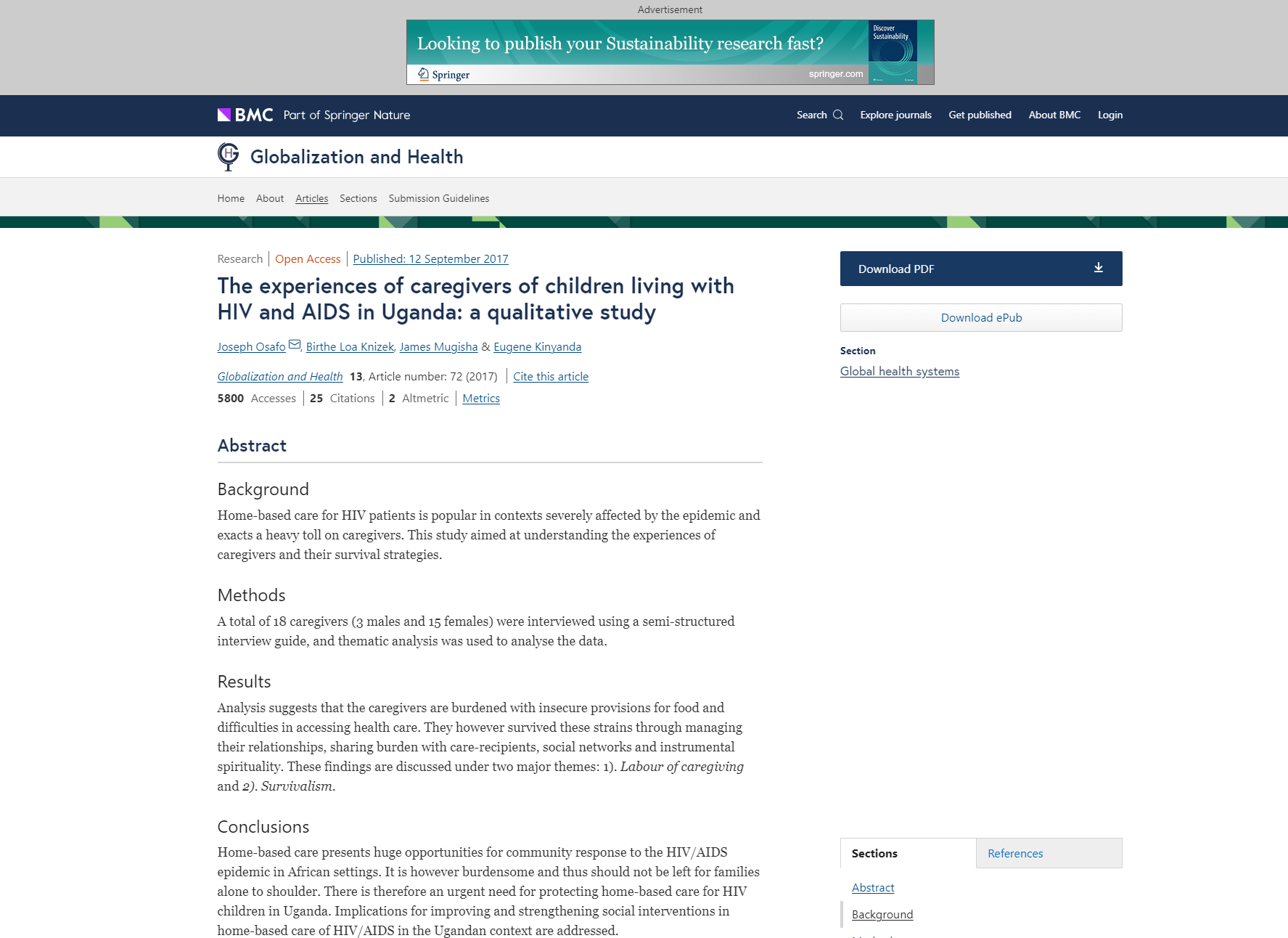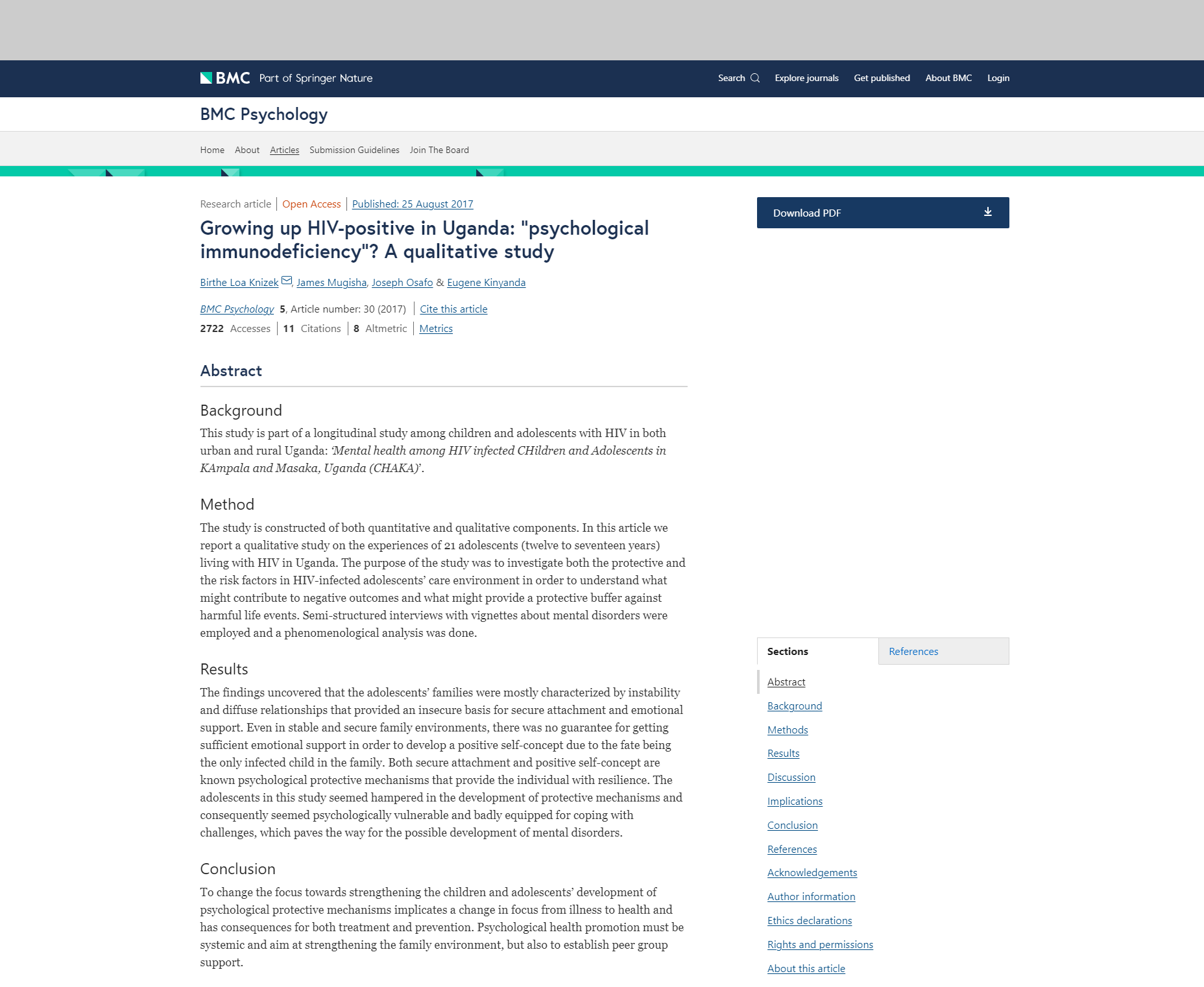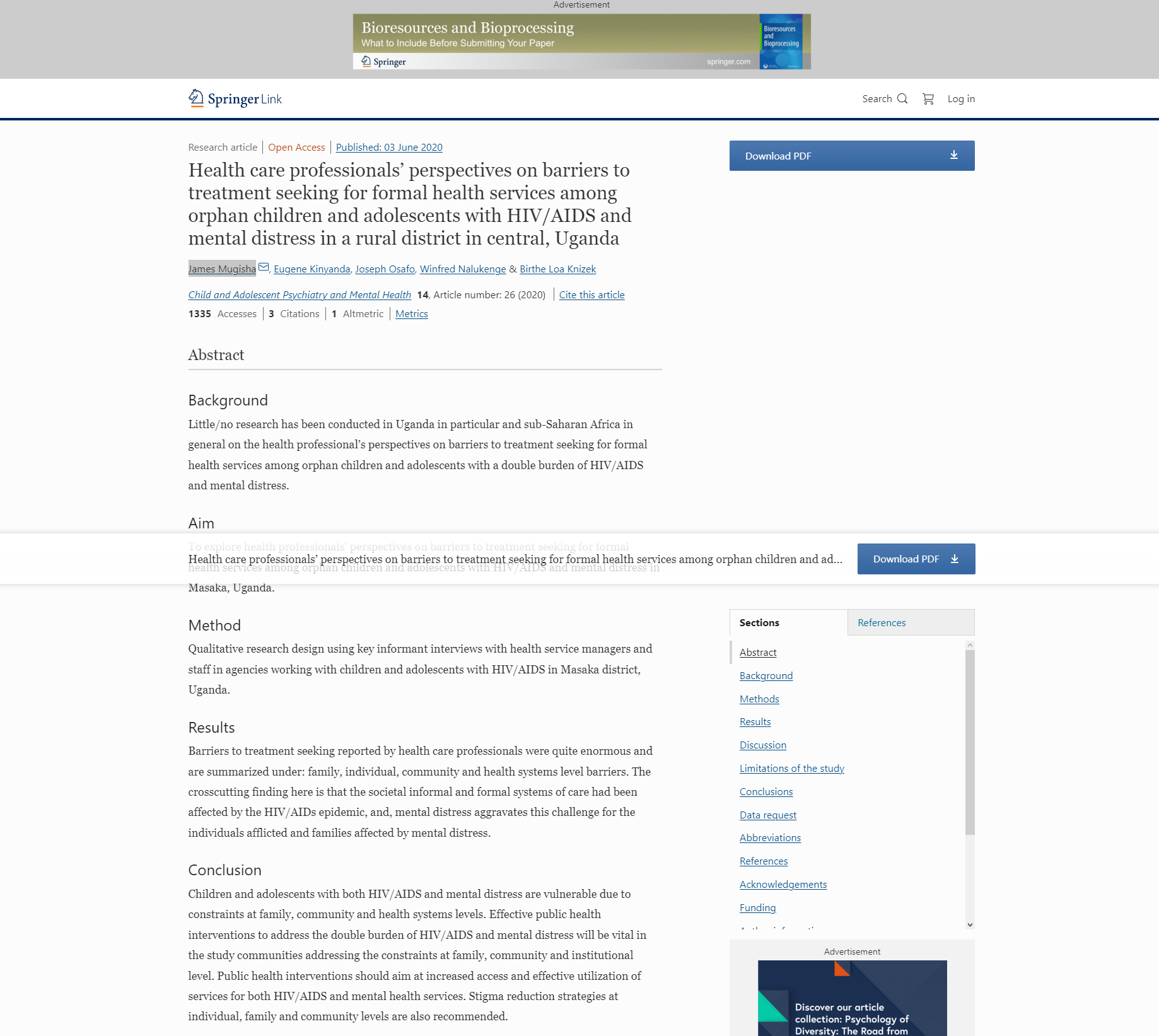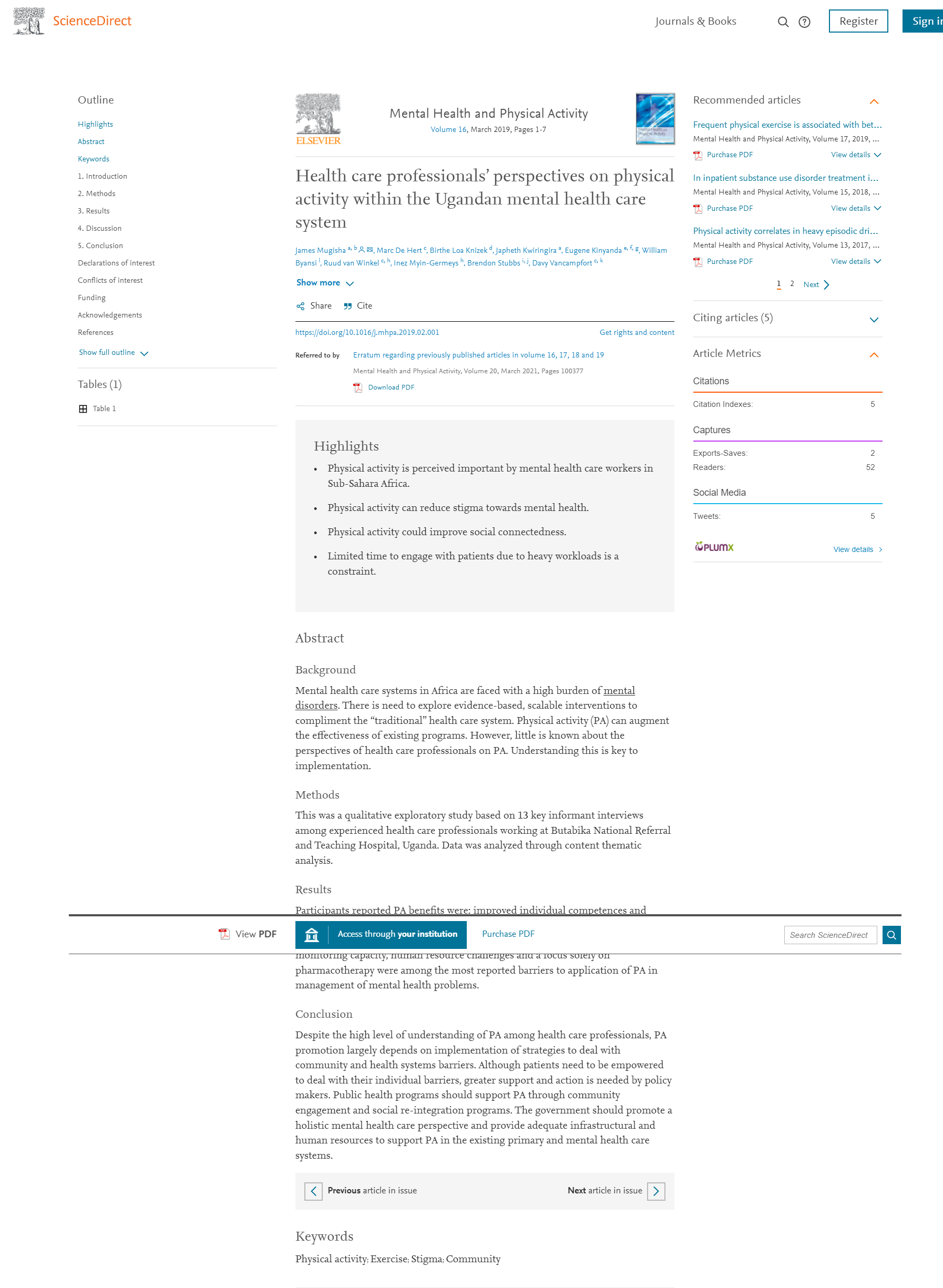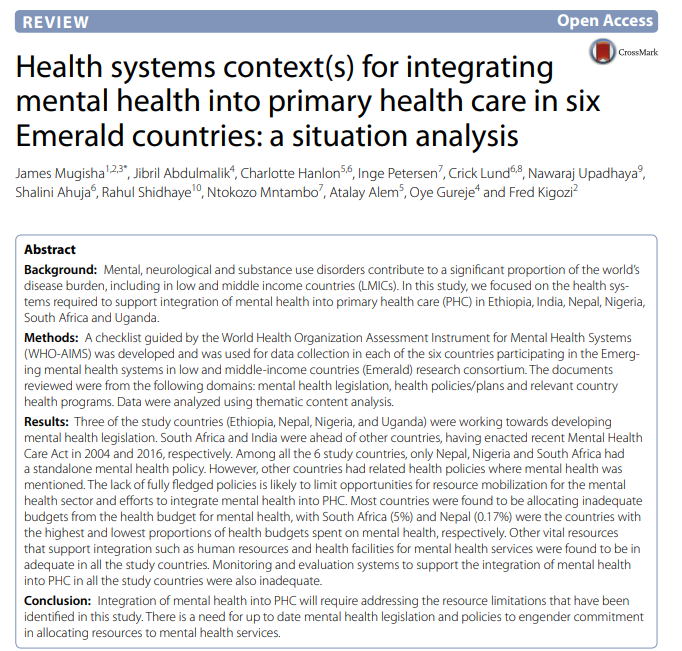Browsing Journal Articles by Title
Now showing items 18-37 of 76
-
Depression and pain: primary data and meta-analysis among 237 952 people across 47 low- and middle-income countries
(Cambridge University Press: Psychological Medicine, 2017-06-22)Depression and pain are leading causes of global disability. However, there is a paucity of multinational population data assessing the association between depression and pain, particularly among low- and middle-income ... -
Depression and physical health multimorbidity: primary data and country-wide meta-analysis of population data from 190 593 people across 43 low- and middle-income countries
(Cambridge University Press, 2017-04-04)Despite the known heightened risk and burden of various somatic diseases in people with depression, very little is known about physical health multimorbidity (i.e. two or more physical health co-morbidities) in individuals ... -
Directions in constructing a body of knowledge in eco-social work education and practice in Uganda: Actions, channels, and implications
(African Journal of Social Work, 2023)In recent times, Uganda has witnessed human suffering resulting from the occurrence of environmental disasters thereby placing social work professionals, particularly those in civic organizations at the forefront of ... -
Dropout from physical activity interventions in people living with HIV: a systematic review and meta-analysis
(Taylor and Francis online : AIDS Care Psychological and Socio-medical Aspects of AIDS/HIV, 2017)Physical activity (PA) interventions have been shown to improve the health of people living with HIV (PLWH), yet treatment dropout poses an important challenge. We conducted a meta-analysis to investigate the prevalence ... -
Effectiveness and cost-effectiveness of integrating the management of depression into routine HIV care in Uganda (the HIV + D trial): a protocol for a cluster-randomised trial
(Springer Nature: International Journal of Mental Health Systems, 2021-05-12)An estimated 8-30% of people living with HIV (PLWH) have depressive disorders (DD) in sub- Saharan Africa. Of these, the majority are untreated in most of HIV care services. There is evidence from low- and middle- income ... -
The efficacy of a lay health workers – led physical activity counselling program in patients with HIV and mental health problems: a real-world intervention from Uganda
(Taylor and Francis online : AIDS Care Psychological and Socio-medical Aspects of AIDS/HIV., 2021-01-23)This study explored the efficacy of a lay health worker (LHW)-led physical activity (PA) counselling program for inactive patients with HIV/AIDS and mental health problems living in a Ugandan farming community. In total ... -
The efficacy of meditation-based mind-body interventions for mental disorders: a meta-review of 17 meta-analyses of randomized controlled trials
(Elsevier: Journal of Psychiatric Research., 2021-02)There is increasing interest in the potential efficacy of meditation-based mind-body interventions (MBIs) within mental health care. We conducted a systematic metareview of the published randomized control trial (RCT) ... -
The efficacy of physical activity counseling in Ugandan patients with HIV and a co-morbid mental disorder: a pilot study
(Taylor and Francis: AIDS Care Psychological and Socio-medical Aspects of AIDS/HIV., 2019-07-08)This study explored the efficacy of physical activity (PA) counseling in inactive patients with HIV/AIDS and a co-morbid mental health disorder living in a Ugandan fishing community. We investigated associations between ... -
Engaging men in gender transformative work in institutions of higher learning: A case of the men’s hub at Makerere University
(Frontiers in Sociology, 2023-02)It was noted that globally, sexual harassment (SH), abuse, and exploitation in higher education institutions (HEIs) remain a problem. In Uganda, it regularly made headlines in the media. Yet, it was only after high-profile ... -
The epidemiology of back pain and its relationship with depression, psychosis, anxiety, sleep disturbances, and stress sensitivity: data from 43 low- and middle-income countries
(Elsevier: General Hospital Psychiatry, 2016-12)Back pain (BP) is a leading cause of global disability. However, population-based studies investigating its impact on mental health outcomes are lacking, particularly among low- and middle-income countries (LMICs). Thus, ... -
Evaluation of performance and perceived utility of mental healthcare indicators in routine health information systems in five low- and middle-income countries
(Cambridge University Press., 2019-08-06)In most low- and middle-income countries (LMIC), routine mental health information is unavailable or unreliable, making monitoring of mental healthcare coverage difficult. This study aims to evaluate a new set of mental ... -
Exercise self-efficacy correlates in people with psychosis
(Elsevier: Psychiatry Research, 2018-04)Despite the recognition of the importance of exercise self-efficacy in exercise adoption and maintenance, previous investigations on exercise self-efficacy in people with psychosis is scarce. The present study aimed to (1) ... -
Experience of implementing new mental health indicators within information systems in six low- and middle-income countries
(Cambridge University Press: BJPsych Open Emerald Series, 2019-08-06)Successful scale-up of integrated primary mental healthcare requires routine monitoring of key programme performance indicators. A consensus set of mental health indicators has been proposed but evidence on their use in ... -
The experience of mental health service users in health system strengthening: lessons from Uganda
(Springer Nature: International Journal of Mental Health Systems, 2019-09-06)Mental, neurological and substance use disorders are a public health burden in Uganda. Mental health service user involvement could be an important strategy for advocacy and improving service delivery, particularly ... -
The experiences of caregivers of children living with HIV and AIDS in Uganda: a qualitative study
(Springer Nature: Globalization and Health, 2017-09-12)Home-based care for HIV patients is popular in contexts severely affected by the epidemic and exacts a heavy toll on caregivers. This study aimed at understanding the experiences of caregivers and their survival ... -
Growing up HIV-positive in Uganda: “psychological immunodeficiency”? A qualitative study
(Springer Nature: BMC Psychology, 2017)This study is part of a longitudinal study among children and adolescents with HIV in both urban and rural Uganda: ‘Mental health among HIV infected CHildren and Adolescents in KAmpala and Masaka, Uganda (CHAKA)’. Method The ... -
Health care professionals’ perspectives on barriers to treatment seeking for formal health services among orphan children and adolescents with HIV/AIDS and mental distress in a rural district in central, Uganda
(Springer Link: Child and Adolescent Psychiatry and Mental Health, 2020-06-03)Little/no research has been conducted in Uganda in particular and sub-Saharan Africa in general on the health professional’s perspectives on barriers to treatment seeking for formal health services among orphan children ... -
Health care professionals’ perspectives on physical activity within the Ugandan mental health care system
(Elsevier: Mental Health and Physical Activity, 2019-03)Mental health care systems in Africa are faced with a high burden of mental disorders. There is need to explore evidence-based, scalable interventions to compliment the “traditional” health care system. Physical activity ... -
Health systems context(s) for integrating mental health into primary health care in six Emerald countries: a situation analysis
(International Journal of Mental Health Systems., 2017-01-05)Mental, neurological and substance use disorders contribute to a significant proportion of the world’s disease burden, including in low and middle income countries (LMICs). In this study, we focused on the health ... -
Indigenous social work with older persons: An international perspective
(Sage Journals, 2023-02)As social work gains strength as a global profession, indigenous social work has emerged within the growing calls to decolonize the profession and offers an alternative worldview. This article uses a systematic literature ...

